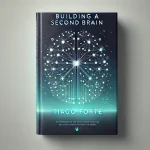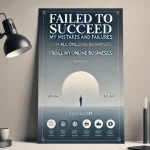This audio was generated with AI. Recommended playback speed: 1.25x
“Follow your true calling—your passion.” tell you everybody, right? Yet, this isn’t the ideal mindset for a fulfilling and successful career, argues Cal Newport.
I had came across a review of this book on Youtube. Despite my prejudices due to its cringy self helpy name, I still watched it and then have immediately decided to read the book. As the narrator kept explaining, I simply saw myself, my own struggle: to be passionate about everything that I do and am interested in at the time, sports, music, mathematics, business. I just wasn’t able to identify my true calling and passion, was pretty much lost and after reading “Mastery” by Robert Greene, I’ve become more confused, expecting to identify my true passion, that I have to master. Even though I do not want to contradict “Mastery” completely, this book simply changed my whole view on “finding my passion and identifying my true calling” part.
Before diving into the detailed review, as always, the main essence of the book is: “Don’t obsess over discovering your true calling. Instead learn rare and valuable skills.”
Passion Hypothesis
The book starts with refuting the “Passion Hypothesis”, saying it is not just a bad advice but also dangerous, because it might lead to uncertainty, confusion and angst.
One has to adopt the Craftsman Mindset, it emphasizes.
Craftsman Hypothesis
The Craftsman Hypothesis, unlike the Passion Hypothesis, suggests that acquiring rare and valuable skills should be prioritized over finding one’s true passion.
It argues that the passion comes automatically after attaining these three conpcepts:
- autonomy, the feeling that you have control over your job,
- competence, which is the feeling that you are good at what you do,
- relatedness, the feeling of connection you have to other people.
To achieve autonomy and competence, one has to achieve mastery in their given field. And to do that, one does not need passion, only the willingness to work hard to acquire that mastery, it expresses.
So the motto of Craftsman Hypothesis is: Don’t do what you love, learn to love what you do, by acquiring competence, autonomy, and relatedness.
Career Capital
The foundation concept of Craftsman Mindset is “(Acquiring) Career Capital”, meaning: learning rare and valuable skills. You have to become “so good they can’t ignore you” at what you do, it says. You achieve it by acquiring Career Capital.
The traits that define great work are rare and valuable. Supply and demand says that if you want these traits you need rare and valuable skills to offer in return. Think of these rare and valuable skills you can offer as your career capital. The craftsman mindset, with its relentless focus on becoming “so good they can’t ignore you,” is a strategy well suited for acquiring career capital. This is why it trumps the passion mindset if your goal is to create work you love. (p. 48)
Deliberate Practice
Yet to attain mastery, one needs to practice deliberately, like a chess grandmaster not just playing too many games but actually strategically practicing, focusing on his weaknesses, you also have to do the uncomfortable work to improve and eventually become a master. “Deliberate practice is often the opposite of enjoyable.” (p. 97)
The crucial thing about deliberate practice is that it has to be achieved without being isolated, meaning: you have to learn actively, get feedback, optimize and improve your work. In order to track your progress, you have to rely on numbers, use metrics and charts. For example a spread sheet where you track your” hours/task” day to day basis.
Control
“If your goal is to love what you do, your first step is to acquire career capital. Your next step is to invest this capital in the traits that define great work. Control is one of the most important targets you can choose for this investment.” (p. 114).
You need control over your job, yet you have to acquire control with enough career capital to back it up, otherwise, control without adequate career capital is unsustainable. This is the first risk about control.
The second one is to change or quit the job after enough career capital and control acquired, this is exactly the phase where you might get promotion offers and have to reject them, the author argues.
The point at which you have acquired enough career capital to get meaningful control over your working life is exactly the point when you’ve become valuable enough to your current employer that they will try to prevent you from making the change (p. 131).
While investing your career capital into control, focus on topics, what people are willing to pay. Don’t confuse it with extreme materialism, or the intention of pursuing money for the sake of money. Instead, your aim is to become a valuable person:
“Money is a neutral indicator of value. By aiming to make money, you’re aiming to be valuable.” (p. 137).
Lastly, define a clear mission and a motivating goal that aligns with your career capital. Use your control and expertise to pursue it, ensuring your mission drives you toward remarkable results.
Stay Lean
Make small bets that only take a few months to realize and give immediate results so you know whether you have succeeded or failed.
We have emphasized the importance of active learning and getting feedback. It is critically important for your success and the fulfillment of your mission to stay agile, avoid waiting years for your first feedback, and leverage small bets. Don’t attempt to plan and execute the entire process all at once:
When Sims studied a variety of successful innovators, from Steve Jobs to Chris Rock to Frank Gehry, as well as innovative companies, such as Amazon and Pixar, he found a strategy common to all. “Rather than believing they have to start with a big idea or plan out a whole project in advance,” he writes, “they make a methodical series of little bets about what might be a good direction, learning critical information from lots of little failures and from small but significant wins” [emphasis mine]. This rapid and frequent feedback, Sims argues, “allows them to find unexpected avenues and arrive at extraordinary outcomes.” (pp. 178-179).
Conclusion
One paragraph in the last chapter of the book summarizes it beautifully:
“Don’t obsess over discovering your true calling. Instead, master rare and valuable skills. Once you build up the career capital that these skills generate, invest it wisely. Use it to acquire control over what you do and how you do it, and to identify and act on a life-changing mission.”
So Good They Can’t Ignore You (pp. 229-230)







